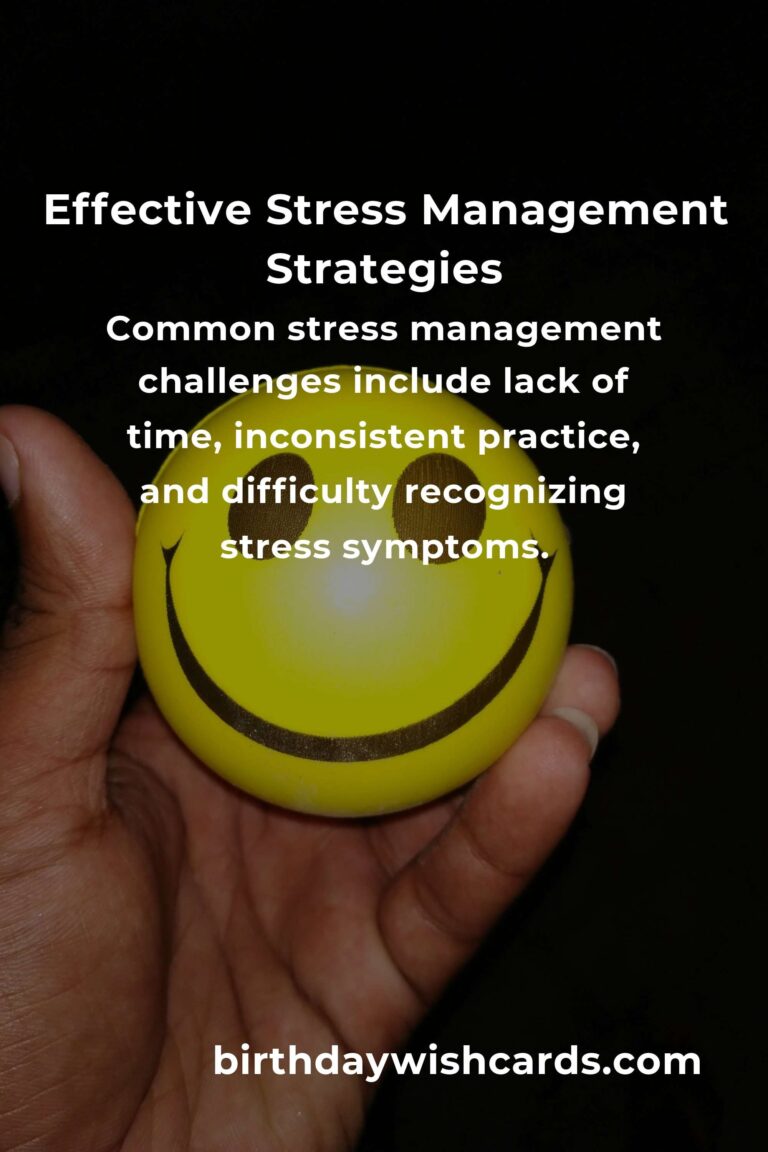
Stress is an inevitable part of life, affecting individuals across all walks of life. While some stress can be beneficial, chronic stress can lead to numerous health problems. Understanding and addressing common stress management challenges is crucial for maintaining both mental and physical well-being.
Understanding the Roots of Stress
Before diving into solutions, it is essential to understand the root causes of stress. Stress can stem from various sources such as work pressures, financial issues, relationship problems, and health concerns. Identifying the source of stress is the first step in managing it effectively.
Many individuals struggle with stress because they fail to recognize its root cause. Once identified, individuals can start to develop strategies to address these triggers.
Common Challenges in Stress Management
Despite numerous available strategies, many people face challenges in managing stress effectively. Some common issues include:
1. Lack of Time for Stress Management Practices
In our fast-paced world, finding time to practice stress management techniques can be challenging. Individuals often prioritize work and family obligations over self-care. However, neglecting stress management can lead to burnout and decreased productivity.
2. Inconsistent Practice
Another challenge is maintaining consistency in stress management practices. Many people start with enthusiasm but quickly fall off track. Consistency is key to seeing benefits from techniques such as meditation, exercise, or journaling.
3. Difficulty in Recognizing Stress Symptoms
Stress often manifests in subtle ways, making it difficult to recognize. Symptoms like irritability, fatigue, and insomnia can be easily dismissed as normal. Without proper recognition, stress can escalate to more severe health issues.
Solutions to Overcome Stress Management Challenges
Addressing these challenges requires a proactive approach. Here are some effective solutions:
1. Prioritize Self-Care
Make self-care a non-negotiable part of your routine. Schedule time for activities that relax and rejuvenate you, whether it’s a walk in nature, reading a book, or practicing yoga.
2. Set Realistic Goals
Start with small, achievable goals to build consistency in stress management practices. For instance, begin with five minutes of meditation daily and gradually increase the duration.
3. Educate Yourself on Stress Symptoms
Learn to recognize the early signs of stress. Keeping a journal can help track your mood and identify patterns that indicate stress buildup.
4. Utilize Technology
Technology can be a great ally in managing stress. Use apps designed for stress relief, such as meditation apps or fitness trackers, to help you stay on track.
5. Seek Professional Help
If stress becomes overwhelming, do not hesitate to seek professional help. Therapists and counselors can provide support and guide you through stress management techniques.
Conclusion
Managing stress effectively is crucial for leading a balanced and healthy life. By understanding and addressing common stress management challenges, individuals can develop better coping strategies. Remember, consistency and self-awareness are key to overcoming these challenges and achieving a more peaceful life.
Stress is an inevitable part of life, but chronic stress can lead to numerous health problems. Understanding the root causes of stress is crucial for effective management. Common stress management challenges include lack of time, inconsistent practice, and difficulty recognizing stress symptoms. Prioritizing self-care and setting realistic goals can help overcome these challenges. Utilizing technology and seeking professional help are effective strategies for managing stress.
#StressManagement #SelfCare #MentalHealth #StressRelief #Wellbeing













